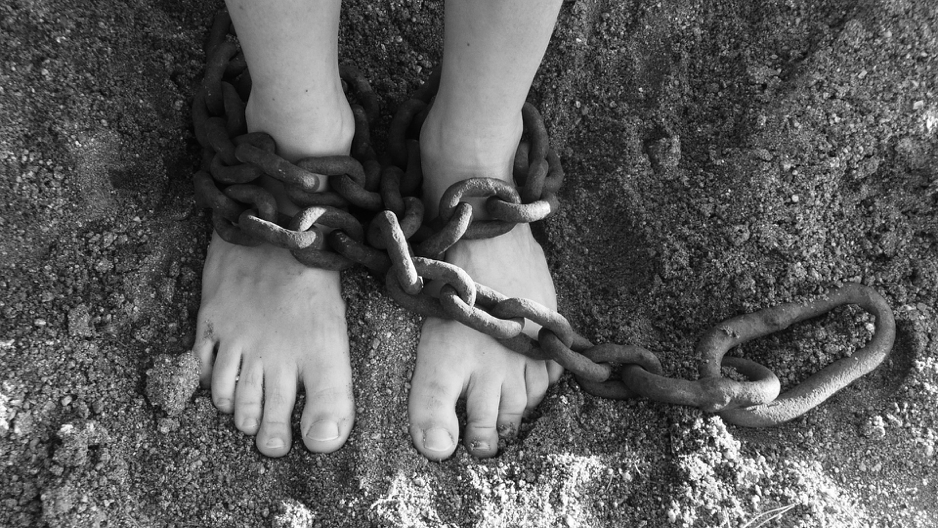Modern Slavery
- Jan 16, 2019
- 3 min read

Slavery is an activity that has survived the numerous breakthroughs of man. It lurks in the shadow of history, sometimes claiming the limelight either as a recipient of admiration or of admonition, and most often of both exclamations.
The modern age began during the onset of the Renaissance, a “rebirth” that propelled human identity from taker to maker, drawing upon Greek and Roman classical works, and from accepter to learner, advancing empirical research in the scientific realm, among others.
Interestingly, the Renaissance also ushered in a self-awareness of sorts, whereby those who were participants and shapers of the time simultaneously framed the age. They saw themselves as flourishing--society was oriented towards glory--stigmatizing and escaping from the clutches of the “Middle Ages.” This awareness based itself, or at least was a derivative of, the movement stylized as humanism, which to a great extent sprung from the foundations of Christianity.
Humanists prided themselves on their thinking. Yet, of the many advantages that introspection and retrospection brought and still yields, it was unable to stem the basic corrupting phenomena of mankind, such as destitution, persecution, and slavery.
Slavery has formed the backbone of society since ancient times. In Mesopotamia, as with subsequent civilizations around the world, war captives were converted into slaves by their conquerors. Greek society blossomed as slaves laboured for their masters, many of whom were leading figures; Aristotle famously thought and evinced that some people were born to be slaves. The Roman Empire grew to such a colossal size because slaves toiled in grand architectural and engineering projects. In fact, during the Renaissance, slavery persisted.
Petrarca (Petrarch), an Italian humanist scholar who is seen as one of the catalysts of the Renaissance, said the following:
“Whereas huge shipments of grain used to arrive by ship annually in this city, now they arrive laden with slaves, sold by their wretched families to alleviate their hunger.”
The slave trade was prevalent at the time, although Africans were not the main trade, but rather Eastern Europeans and Arabs. In fact, the term “slave” originates from “Slav,” a group that was extensively uprooted and sold during the time. I must note that slaves were more loosely tied to their owners than ages prior and to come, for they were often granted freedom when their owners died--not only that, but they were provided with necessary amenities with which they could start life anew.
Slavery continued during the Age of Enlightenment. Again, the great thinkers prided themselves in their practice of rationality and logic. Yet in the midst of their speculations and observations, they seemed to take little notice of slaves, even though most of them possessed a few.
As modern imperialistic designs were being formed, its advocates were justifying their subjugations of others as a means of assistance, for establishing civilization in barbaric territories. When imperialist conquests took place, they reduced much of the native populations to forced and carefully guarded workers, careful not to utilize the now generally taboo word “slave,” particularly in what they termed the New World and the Africa of the 19th and early 20th centuries.
We still live in a world that operates on slavery. Modern slavery maintains its ancient form -namely that of persons being forced to live restricted lives wherein their human dignity is regularly infringed. These slaves predominantly result from debt bondage or trafficking, and number over 40 million today. This form of slavery - actual bondage - has thankfully diminished as a proportion of global demographics, compared to previous times.
Unfortunately, modern slavery persists to the same degree, if not bigger, as it did since the dawn of civilization. This is the second form of slavery, or the slave to one’s self.
We live in the most technologically advanced and intellectually stimulating period of human history. This time frame is so unique that scholars have coined it as the Anthropocene era: the age in which humans have the ability to destroy themselves namely through weapons of mass destruction and the degeneration of the environment.
Despite the heights to which humanity has progressed overall, we are still stuck in the moral dilemmas of yore. Our unhealthy occupation with our individual selves--not all self-interest is wrong - has caused some of us to exploit others and all of us to hurt others intentionally and unintentionally. We shall eventually have to contend with both types of slavery during our lifetimes, for they are two of the most predominant reasons why we have developed the means to cease life on earth.




Comments